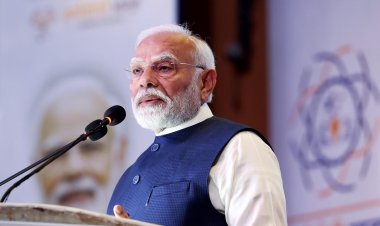According to a study from INST, a new heat-based cancer treatment has been found to reduce the doses of chemotherapy needed.

The Institute of Nano Science and Technology (INST) in Mohali, an autonomous institute of the Department of Science and Technology, has discovered that combining ultra-small magnetic nanoparticles (MDs) with heat-based treatment can reduce doses of chemotherapy and its side effects.
The team used MDs along with a heat shock protein 90 inhibitor (HSP90i) at suboptimal doses for effective magnetic hyperthermia-based cancer therapy, named MHCT.
In rat models, the combination resulted in maximum glioma cell death, with tumour inhibition rates reaching 65% and 53% at the primary and secondary tumour sites within 8 days, as revealed in the study published in the journal ACS Nano.
The team emphasized the need for new cancer treatment methods as cancer rates rise worldwide. This innovative method is less invasive and causes fewer side effects. It also reduces the required amount of chemotherapy, making the treatment both safer and more effective.
On the other hand, traditional treatments such as chemotherapy and surgery have various limitations, including drug resistance and severe side effects.
The research team focused on the role of HSP90, a gene that is upregulated in response to heat stress. By using the drug 17-DMAG to inhibit HSP90, they aimed to reduce the cells’ ability to repair heat-induced damage, leading to enhanced tumour cell death.
The team expressed the need for extensive global research to realize the clinical application of the new therapy as a potential adjuvant or alternative cancer therapy.
This innovative therapy offers a key advantage by potentially stimulating the immune system, enhancing the body’s natural defense against cancer. Additionally, by overcoming drug resistance, a common challenge in cancer treatment, this approach offers a new frontier in combating this formidable disease.















